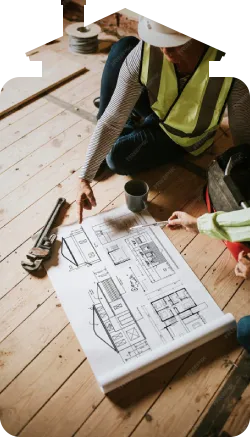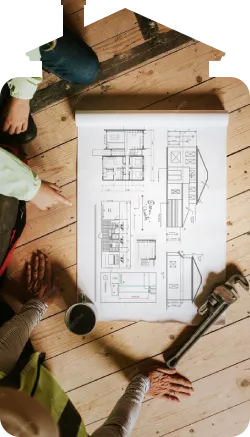Types of Materials
Hurricane-Resistant Roofing Materials Guide for South Florida Properties
Expert Material Selection | CCC1334626 Licensed Guidance | Impact-Resistant Systems | Miami-Dade Approved Materials

━━ Smart Roofing Choices ━━
Choosing the right roofing materials for your South Florida property requires specialized knowledge of hurricane resistance, building codes, and climate performance. Atlas Builders & Development provides expert guidance on roofing materials specifically engineered for Miami-Dade and Broward County's demanding weather conditions, helping you make informed decisions that protect your investment for decades.
What We Offer
From impact-resistant asphalt shingles and hurricane-rated metal roofing to traditional tile systems and modern membrane technologies, our comprehensive material guide covers everything you need to know about selecting roofing materials that meet Florida Building Code requirements while providing superior protection against hurricanes, intense UV exposure, and heavy rainfall.
Our certified roofing professionals evaluate each material's performance characteristics, warranty coverage, insurance benefits, and long-term value to help you choose the optimal roofing system for your specific property type, budget, and aesthetic preferences. Whether you're building new, replacing an existing roof, or planning for future upgrades, this guide provides the expert insights you need to make confident material selections.
With extensive experience installing and maintaining every roofing material type throughout South Florida, Atlas Builders & Development combines technical expertise with practical knowledge to ensure your material choice delivers maximum protection, efficiency, and value in our unique coastal climate.

Types of Materials
Why Choose:
Impact-Resistant Asphalt Shingles
Most popular choice combining proven hurricane protection with reasonable cost. Excellent value for money with significant insurance discounts.
METAL ROOFING SYSTEMS
Superior hurricane protection with lowest total cost of ownership. Reduces cooling costs 20-30% and requires minimal maintenance.
TILE ROOFING SYSTEMS
Classic South Florida elegance with modern hurricane performance. Excellent thermal properties reduce energy costs 15-25%.
FLAT ROOF MEMBRANE SYSTEMS
Cost-effective waterproofing for flat roofs. Energy-efficient white membranes reduce cooling costs 15-25%.
━━ Roofing Materials ━━
Roofing Material Comparison & Selection Guide for South Florida
Choosing the optimal roofing material for your South Florida property requires careful consideration of performance, cost, aesthetics, and long-term value. Our comprehensive comparison guide helps you make informed decisions based on your specific needs and priorities.
Hurricane Resistance (Wind Speed Rating):
- Metal Roofing: 180+ mph (Excellent)
- Tile Systems: 150+ mph (Very Good)
- Impact-Resistant Shingles: 130+ mph (Good)
- Membrane Systems: 110+ mph (Adequate)
Lifespan in South Florida Climate:
- Metal Roofing: 40-50 years (Excellent)
- Tile Systems: 30-50 years (Very Good)
- Impact-Resistant Shingles: 20-25 years (Good)
- Membrane Systems: 15-25 years (Adequate)
Initial Investment Level:
- Impact-Resistant Shingles: $8-12/sq ft (Budget-Friendly)
- Membrane Systems: $5-10/sq ft (Moderate)
- Tile Systems: $10-20/sq ft (Premium)
- Metal Roofing: $12-18/sq ft (Premium)
Lifespan in South Florida Climate:
- Metal Roofing: 20-30% cooling reduction (Excellent)
- Tile Systems: 15-25% cooling reduction (Very Good)
- Impact-Resistant Shingles: 10-15% cooling reduction (Good)
- Membrane Systems: 15-25% cooling reduction (Very Good)
PROFESSIONAL RECOMMENDATION PROCESS
Atlas Builders & Development evaluation method:
1. Property Assessment: Structural, architectural, and exposure evaluation
2. Client Consultation: Budget, priorities, and aesthetic preferences
3. Material Analysis: Performance requirements for specific location
4. Code Compliance: Building requirements and permit considerations
5. Warranty Review: Coverage options and manufacturer support
6. Installation Planning: Timeline, coordination, and quality control
Our certified professionals provide personalized recommendations based on your specific property requirements, ensuring optimal material selection for maximum protection, efficiency, and value.
FAQ
Frequently Asked Questions About Roofing Materials for South Florida
Which roofing material provides the best hurricane protection in South Florida?
Metal roofing offers the highest hurricane protection with ratings up to 180+ mph, followed by properly installed tile systems at 150+ mph. Impact-resistant shingles provide good protection at 130+ mph and represent the most cost-effective hurricane-resistant option.
How do I know if my roof structure can support tile or metal roofing?
A structural evaluation by a licensed engineer determines load capacity. Most South Florida homes can support tile or metal roofing, but older structures may require reinforcement. We provide free structural assessments as part of our material consultation process.
What roofing material offers the best value for money in South Florida?
Metal roofing provides the best long-term value despite higher initial costs, with 40-50 year lifespan and significant energy savings. Impact-resistant shingles offer the best short-term value with reasonable costs and proven hurricane protection.
Do different roofing materials affect my insurance premiums?
Yes, significantly. Impact-resistant materials can reduce premiums 15-35%, with metal roofing typically offering the highest discounts. Insurance companies recognize superior hurricane protection with substantial premium reductions.
Which roofing material is most energy-efficient in South Florida's climate?
Metal roofing with reflective coatings provides the highest energy efficiency, reducing cooling costs 20-30%. Tile systems and white membrane systems also offer excellent energy performance with 15-25% cooling cost reductions.
How long do different roofing materials last in South Florida's climate?
Metal roofing lasts 40-50 years, tile systems 30-50 years, impact-resistant shingles 20-25 years, and membrane systems 15-25 years. The intense UV exposure and hurricane potential in South Florida reduce all material lifespans compared to other climates.
Can I install solar panels on all roofing materials?
Solar panels can be installed on most roofing materials, but metal roofing and tile systems provide the most secure mounting options. We recommend solar-ready preparation during initial roofing installation for optimal integration.
What maintenance do different roofing materials require?
Metal roofing requires minimal maintenance with occasional cleaning. Tile systems need periodic inspection and individual tile replacement. Impact-resistant shingles require regular inspection and occasional repairs. Membrane systems need annual inspection and resealing.
Are there color and style limitations with hurricane-resistant materials?
Modern hurricane-resistant materials offer extensive color and style options. Impact-resistant shingles provide the most variety, while metal roofing and tile systems offer distinctive but more limited options. Custom colors are available for most materials.
How do building codes affect roofing material selection in South Florida?
Florida Building Code requires specific wind resistance ratings and installation standards. Miami-Dade County has additional requirements for hurricane-prone areas. Our licensed professionals ensure all material selections meet current code requirements.
What's the difference between Class 3 and Class 4 impact-resistant shingles?
Class 4 shingles (highest rating) withstand 2-inch diameter hail impacts, while Class 3 withstands 1.75-inch impacts. Class 4 materials qualify for higher insurance discounts and provide superior protection against hurricane debris.
Can I mix different roofing materials on the same property?
Yes, different materials can be used for different roof sections, but proper integration and flashing details are critical. This approach is common for complex architectural designs or when matching existing materials during additions.
Ready to select the perfect roofing material for your South Florida property?
Contact Atlas Builders & Development at 786-442-1605 for expert consultation and personalized material recommendations.


Licensed. Trusted. Built to Last.
Atlas Builders & Development is committed to providing superior construction services to our clients.
